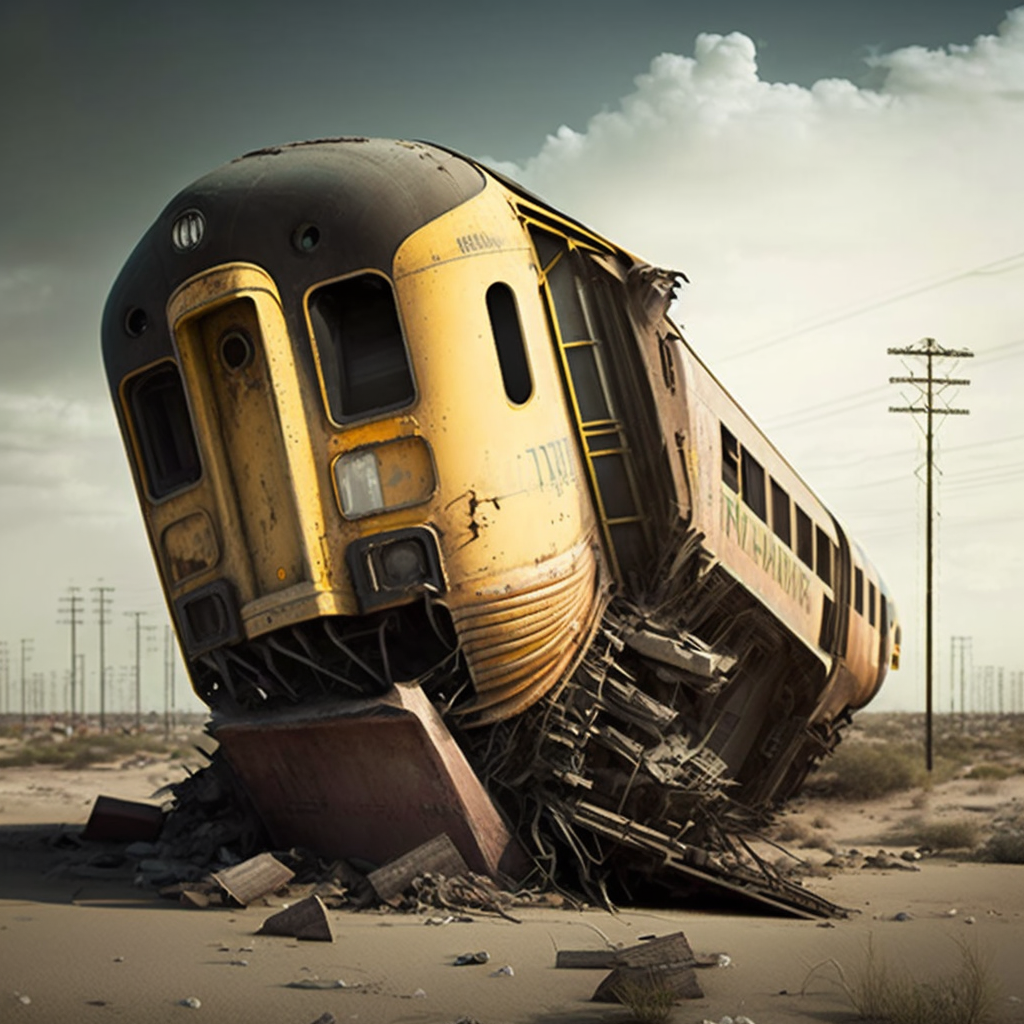This derailment is catastrophic, and the suffering that people are experiencing is real. However, it’s the result of business decisions that took place over years.
Hi, and welcome to my rant.
I’m Ryan Quiring, and I’ve worked in safety for my whole career. Starting in control systems for industrial compression. These systems are so complex and inherently risky that safety was part of the design process; legally, it needed to be… to a degree.
After programming systems for a few years, I was exposed to the world of functional safety engineering through programming life safety systems for a chemical research facility. Automated life safety systems are used as a last line of defence against a failure that exposes humans, assets, or the environment to the risk of injury, illness, contamination, production loss, etc.
Only a short time after that, I saw the future of how systems should be implemented. As a result, I developed systems following the IEC61508 and IEC61511 (ISAS84 in North America) specifications, an international specification for functional safety in the natural resource processing sector.
This specification is considered state-of-the-art. However, it is not new. It’s been available for companies to use for decades. In most European countries, this specification is mandatory, as it outlines the most effective way to protect against the risk of failures that can happen to any facility, pipeline, logistics route (including trucks and trains), or off-site operation. It protects an operation from risk exposure which can impact;
- Public
- Occupational Safety
- Assets
- Production Loss
- Environmental Damage, and
- Reputation
Soon after diving into these specifications, I saw all of the applicable uses for this technology. Imagine confidently running a facility at 99% or even 110% capacity, knowing full well that the safety system will protect against any potential upset in any portion of your facility. The production uplift would generate millions of dollars in additional revenue for owners of these facilities. Surely they would all want to adopt these systems!
So you can imagine how astonished I was when I started to inform people about this technology, and they all said, “no thanks.” (Not all, just most)

I heard every excuse in the book. Too expensive, it’s not required, we don’t have money in the budget, now is not the time, blah blah blah. Then in 2014, the global oil and gas industry slowed, and much of my contract work was paused. I took on other contracts in project work, but I transitioned to Occupational Health and Safety.
I thought, wow, if safety managers could collect safety information in real-time, report on it, and create plans based on that data, they would be able to make a huge impact!
I learned throughout my career that most companies in North America don’t prioritize safety. They do the bare minimum to appease the lowest level of compliance they need to continue to operate.
No more, no less.
So when lobbying groups get their way with government institutions, and government deregulates aspects of the law, changing the compliance rules, companies don’t continue to perform strict safety requirements. They do this in order to demonstrate short-term increases in their profits. Revenue doesn’t change much; all they’ve accomplished by eliminating some of these safety requirements is cutting some operational expenses.
It’s as if leadership teams in these organizations have completely forgotten about the debt they incur when they skip, cut, or remove much of the quality control and protection layers from the assets they manage. Just like a human body, things tend to break down and fail if you don’t take care of them. Eating right, exercising, and hobbies are all forms of preventative maintenance that we need to stay on top of our health. Assets require the same type of treatment. Oil changes, brakes, and valves all need to be “massaged” once in a while to make sure when they need to work, they do! Decisions to remove these protections/processes are not made unconsciously. They know the risks because they have all been thoroughly identified and documented in engineering documentation.
So it’s no wonder events like the train derailment in Norfolk, the pipeline leak in the Northern Saskatchewan River, fertilizer plants exploding due to chemical runaways, and worker fatalities in construction (more than three people every day!) continue to occur, and they are getting worse!
Companies that I am familiar with all shout the same line! SAFETY FIRST! and yet, when it comes time to go from words to action, the opposite is happening. More industrial accidents, more worker injuries and fatalities, more environmental damage displacing the public, production losses, supply chain interruptions, and media report after media report all saying the same stupid things.
When will we learn? When will top-level leadership begin to realize that it’s never worth cutting a layer of safety to improve production? Find a different way. Safety is meant to enable efficiency, not impede it. It’s purpose is to increase the reliability, repeatability, and availability of the assets it manages. What part of business school are leaders forgetting? I assume they talk about financial risk? Sustainability must be a thought? How is it so consistent? Do business leaders all lean to austerity when it comes time to budget for the year? Surely their salary would reflect such a decision.

When will government begin to act on the public’s behalf? The public doesn’t hire lobby groups because we elect the people being lobbied. The people we elect are meant to have our motives in mind intrinsically.
Something to take away from this rant might be this. If the government ever had a role to play in society, it would be one that sets the bar for high-risk businesses to operate without risking the public or their worker’s health. It seems like common sense; if I’m wrong, I’d love to hear an alternative to what we’re doing now because it appears we’re regressing in our approach rather than getting better.
End of rant…
